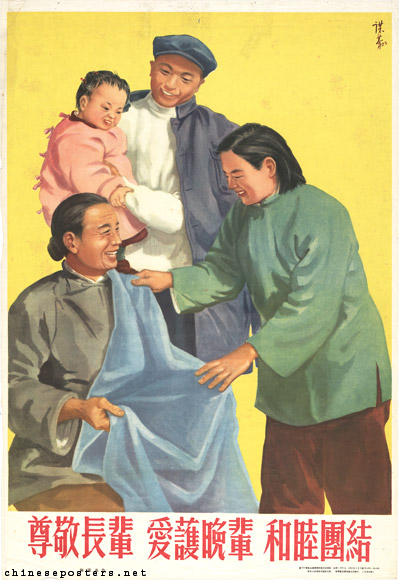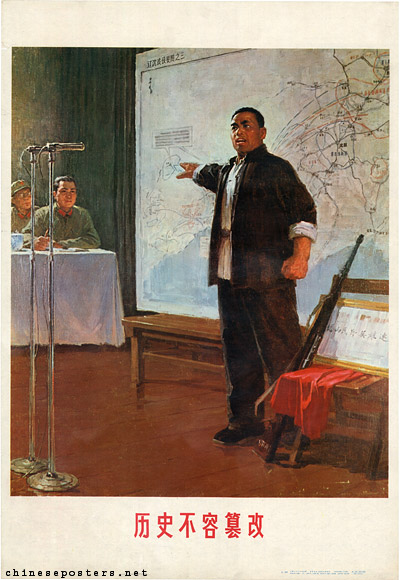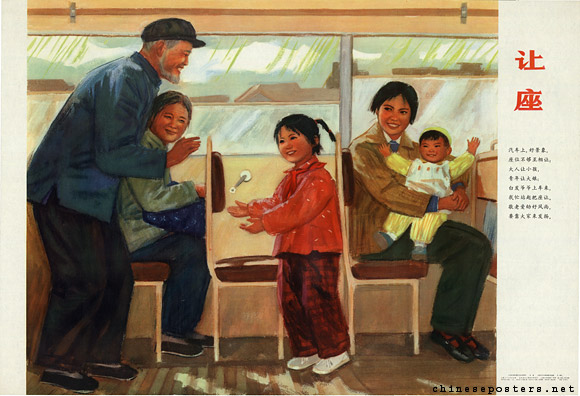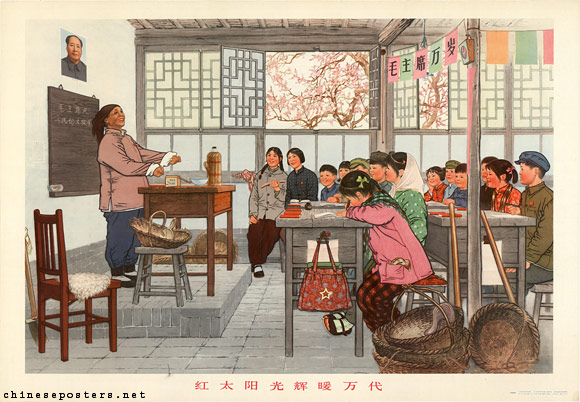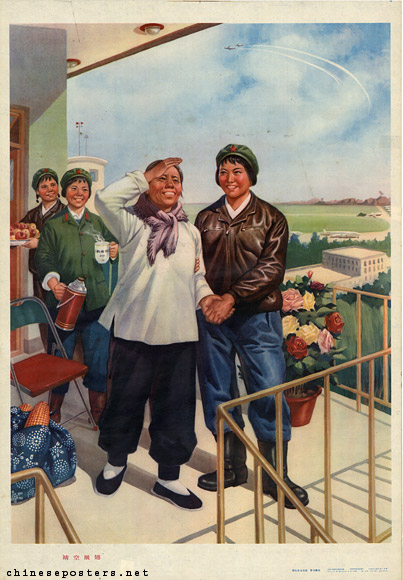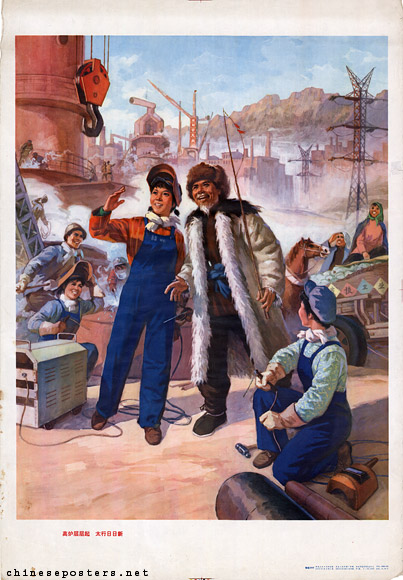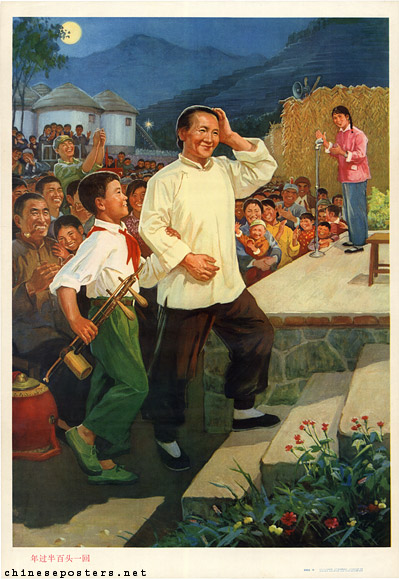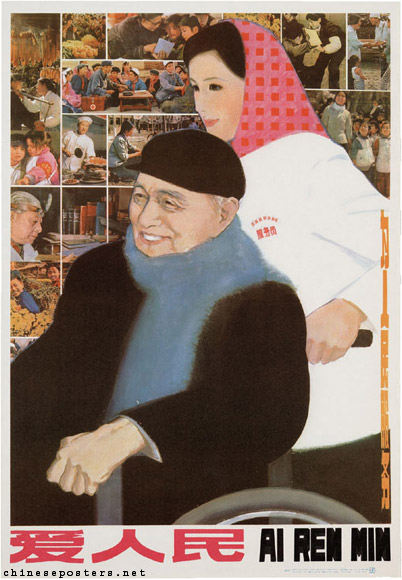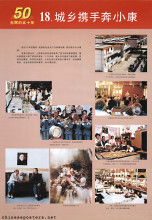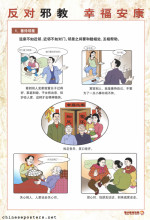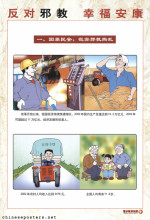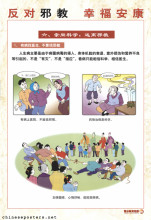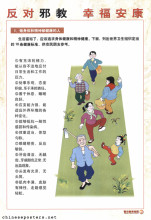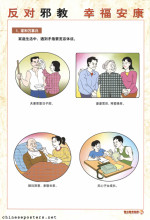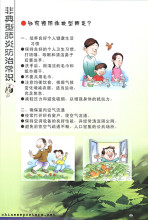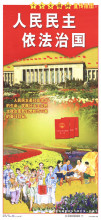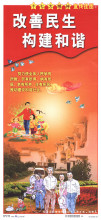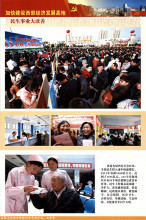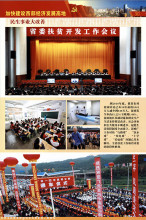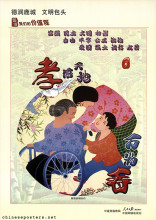Honor elders, cherish the young, in harmony and unity, 1953
My mother-in-law once pointed out that in most Chinese propaganda posters, elderly people are not represented, with the exception of the leaders. Given the traditional veneration of old age in Chinese culture, this indeed is remarkable.
History is not easily tampered with, 1975
However, as early as the 1950s, old people have appeared in posters, although not frequently and often only in the background. In many cases, the depiction of the elderly is used to teach lessons in social morality and harmonious family relations.
In the 1980s, the elderly practically disappeared, except in a few posters where they were no longer pictured while taking an active part in various activities, but as people in need of care. Lacking a comprehensive system for old-age security, care for the elderly has become a major problem for China in the decades to come.
Whenever elderly people are represented, they are usually women, engaged in three types of activities: looking after the (grand)children; spending time on typically feminine pursuits such as needlework; and supporting the People’s Liberation Army. The last activity is intended to show the close relations between the people and the Army. In other cases, elderly people are shown reminiscing about the bad old days, or eating bitterness.
The glow of the red sun warms tenthousand generations, 1974
In a few rare instances, older men have been pictured while recounting their war-time experiences. More often, elderly people are used as contrast with the past, as a way to show how much China has changed, or improved, since the founding of the People’s Republic. They invariably stand in awe of the new China.
Get ready for a flight in the clear sky, 1976
Tall rising chimneys change the skyline, 1974
In the 1980s, the elderly only made rare appearances, usually showing them as people who needed help with shopping, or while crossing the street, or a more general type of care. With the decentralisation of welfare responsibilities to the communities (社区) in urban areas, the elderly have made a comeback in the propaganda, or publicity materials put out by the communities themselves: elderly women (大妈) taking part in yangge dancing, elderly men participating in chess games, and both genders joining physical activities like shuttlecock.
Chau-Kiu Cheung & Alex Yui-Huen Kwan, "The erosion of filial piety by modernisation in Chinese cities", Ageing & Society 29 (2009), 179–198
Neil J. Diamant, "Veterans, Organization, and the Politics of Martial Citizenship in China", Journal of East Asian Studies 8 (2008), 119–158
Yun Ke, "Ageing on WeChat: The Impact of Social Media on Elders in Urban China", Journal of Visual and Media Anthropology, 1:1 (2015), 8-21
